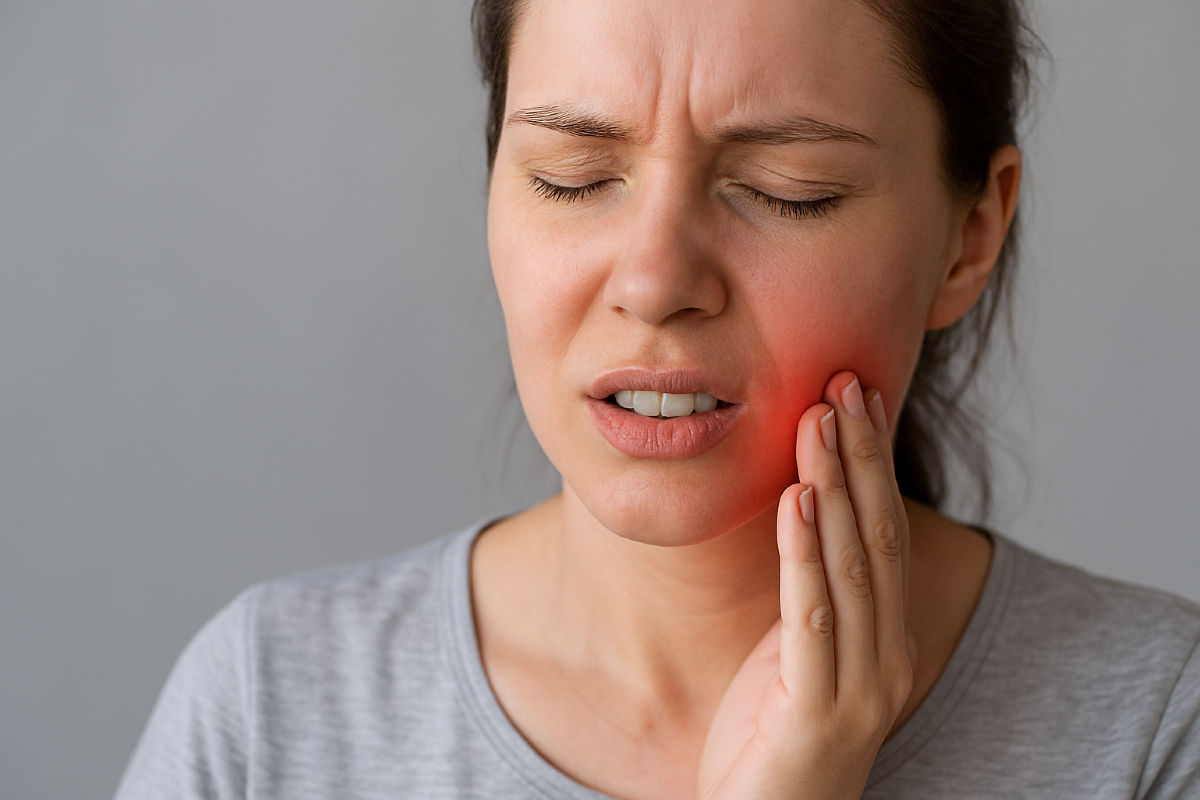
Best medicine
May 7, 2014throat pain
May 9, 2014
A woman with her mouth open & with her hand on her jaw
🦷 Understanding and Addressing Tooth Pain: Your Guide to Relief
Tooth pain is a universal experience—and a truly unpleasant one. Whether it’s a dull, persistent throb or a sharp, sudden ache, toothaches are your body’s unmistakable way of telling you that something is wrong and professional attention is needed.
While there are effective measures you can take at home for temporary relief, it is crucial to remember that these are just stopgaps. A persistent toothache almost always indicates an underlying issue that requires a visit to your dentist. You can get cheap medication for Tooth Pain here. Book Now
What Causes That Pain? The Most Common Culprits
Tooth pain is often caused by an inflammation or irritation of the dental pulp—the soft tissue containing nerves and blood vessels inside your tooth. This can happen for several reasons:
- Cavities (Tooth Decay): The most common cause. Holes (cavities) in the protective enamel can reach the sensitive inner layers of the tooth, causing pain, especially when consuming hot, cold, or sweet items.
- Dental Abscess: A serious infection where pus collects at the root of a tooth or in the gums. This often causes severe, throbbing, and continuous pain, sometimes accompanied by swelling and fever.
- Cracked or Chipped Tooth: A fracture, which may be too small to see, can expose the inner pulp and cause sharp pain when biting down.
- Loose or Broken Filling/Crown: If a dental restoration is damaged, the underlying tooth can become newly exposed and sensitive.
- Gum Disease: Advanced gum disease (periodontitis) can lead to receding gums, exposing the sensitive root surface.
- Impacted Wisdom Teeth: When wisdom teeth don’t have enough room to erupt properly, they can cause pain, swelling, and infection. Buy legit pain medicine from bluerxpharmacy.com
Measures for Quick, Temporary Relief at Home
While you wait for your dental appointment, here are safe, general measures you can take to manage the discomfort:
- Rinse with Salt Water: A warm saltwater rinse acts as a natural disinfectant and helps reduce swelling. Dissolve half a teaspoon of salt in a cup of warm water and swish it around your mouth for about 30 seconds before spitting it out.
- Use a Cold Compress: Apply an ice pack or a bag of frozen vegetables wrapped in a cloth to the outside of your cheek for 15-20 minutes at a time. This helps constrict blood vessels, numbing the pain and reducing swelling.
- Over-the-Counter Pain Relievers: Medications like ibuprofen (which also helps with inflammation) or acetaminophen can temporarily relieve pain. Always follow the dosage instructions on the package and consult with a pharmacist if you have any questions or pre-existing conditions.
- Apply Clove Oil (with caution): Clove oil contains eugenol, a natural anesthetic. Dab a small amount onto a cotton ball and gently apply it to the painful area. Be careful not to swallow and avoid applying directly to sensitive gum tissue as it can cause irritation.
- Elevate Your Head: Toothaches can feel worse when lying down due to increased blood flow and pressure. Prop your head up with an extra pillow when sleeping.
- Avoid Triggers: Steer clear of extremely hot, cold, sweet, or acidic foods and drinks, as these can exacerbate the pain.
When to See a Dentist IMMEDIATELY
Temporary relief is not a cure. If your tooth pain persists for more than one or two days, or if you experience any of the following symptoms, seek professional dental care right away:
- Severe, persistent, or throbbing pain that doesn’t subside with home remedies or pain relievers.
- Swelling in your face, jaw, or neck.
- Fever or a general feeling of being unwell.
- Pain when you bite or a foul-tasting discharge from the tooth or gums (a sign of infection).
- Difficulty breathing or swallowing (this is an emergency situation—seek immediate medical attention).
Disclaimer: This blog post provides general information and is not a substitute for professional medical or dental advice, diagnosis, or treatment. Always seek the advice of your dentist or another qualified healthcare provider with any questions you may have regarding a medical condition or treatment.

